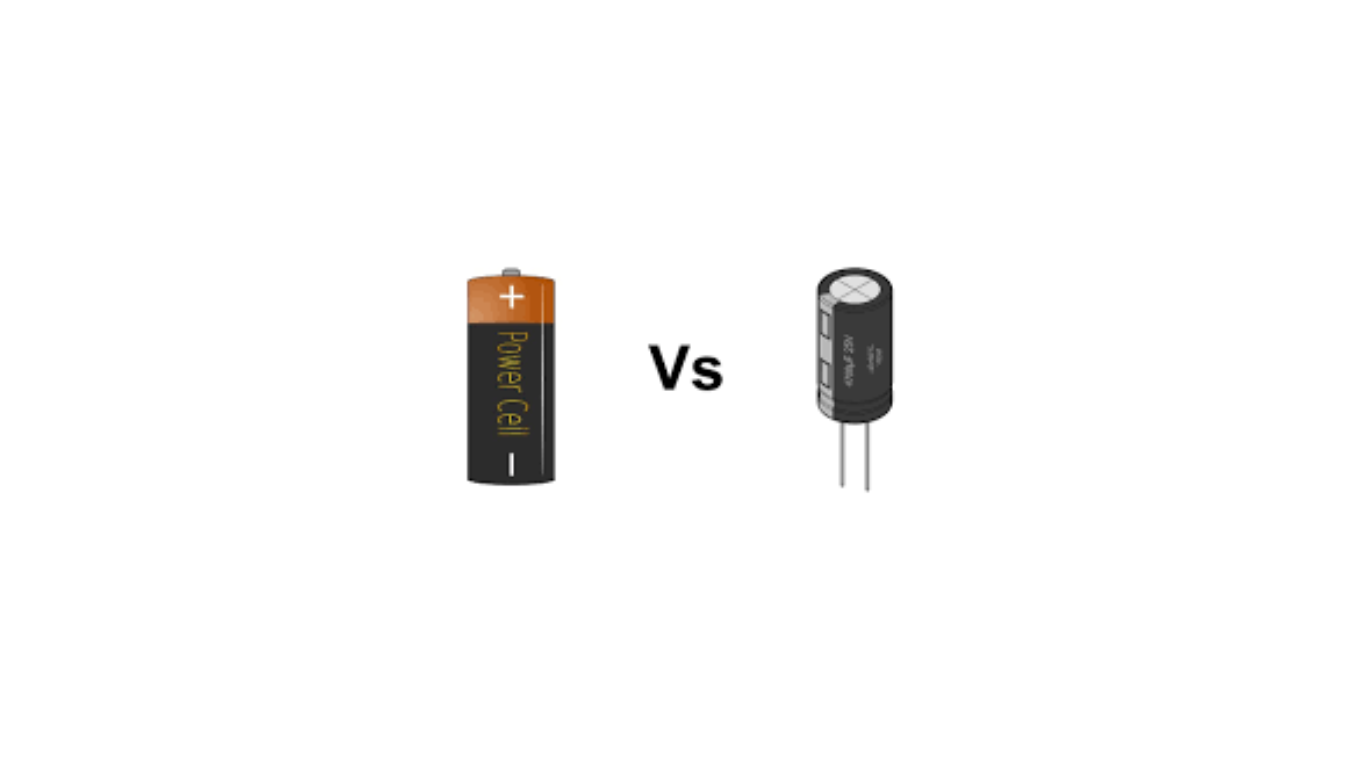
What is a capacitor?
A capacitor stores electric charge in an electric field and consists of two metallic plates separated by a dielectric medium. The dielectric medium can be made of materials such as paper, electrolytes, mica, tantalum, etc.
What is a battery?
A battery is a component that supplies energy to a circuit. It can be charged by applying voltage across it and stores energy for later use.
What is the difference between a capacitor and a battery?
There are several key differences between a capacitor and a battery:
- Energy Storage:
- Capacitor: Stores potential energy in an electric field.
- Battery: Stores energy in the form of chemical energy.
- Energy Release:
- Capacitor: Releases stored energy when the supply is switched off.
- Battery: Delivers energy to the load even after the supply is disconnected.
- Active/Passive Component:
- Capacitor: Passive component that stores and releases energy.
- Battery: Active component that delivers current to the load.
- AC/DC Usage:
- Capacitor: Used in AC circuits to block DC components.
- Battery: Can be charged with a DC supply and undergoes chemical reactions.
- Discharge Rate:
- Capacitor: Discharges quickly due to a lesser time constant and low resistance.
- Battery: Discharges exponentially and takes longer to discharge.
- Charging and Discharging Time:
- Capacitor: Charges and discharges quickly, typically in 1-10 seconds.
- Battery: Charging and discharging time is slower, taking about 1-2 hours.
- Life Cycle and Cost:
- Capacitor: Longer life cycle (around 30,000 hours) and higher cost.
- Battery: Shorter life cycle (around 500 hours) and lower cost.
- Specific Power:
- Capacitor: Higher specific power (around 10,000 W/kg).
- Battery: Lower specific power (ranging from 1,000 to 3,000 W/kg).
- Temperature Range:
- Capacitor: Operates in a temperature range of -10 to 65 degrees Celsius.
- Battery: Operates in a temperature range of 0 to 45 degrees Celsius.
- Size:
- Capacitor: Larger in size compared to a battery.
Please note that these differences highlight the general characteristics of capacitors and batteries, but specific types and designs may have variations in their properties and applications.